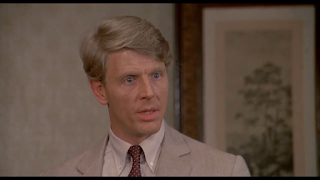THE DAY OF THE JACKAL
MOVIE REVIEW
The Day of the Jackal is a 1973 political thriller
film directed by Fred Zinnemann and starring Edward Fox and Michael Lonsdale.
Based on the 1971 novel of the same name by Frederick Forsythe, it is about a
professional assassin known only as "The Jackal" who is hired to
assassinate French President Charles de Gaulle in the summer of 1962.
On August 22, 1962, a terrorist organization called
the OAS, enraged by the French government granting independence to Algeria,
attempts to assassinate French President Charles de Gaulle. The assassination
attempt failed and de Gaulle and his entire crew were unharmed. Within six
months, OAS President Jean Bastien-Thierry and several other members were
captured and Bastien-Thierry was executed.
The remaining OAS leaders, now in hiding in Austria,
plan another attempt and hire a British assassin codenamed "Jackal"
for $500,000. Jackal travels to Genoa and receives a customized gun from a
gunslinger and a fake identity card from a counterfeiter, whom Jackal kills
when the man tries to blackmail him. In Paris, the Jackal duplicates a key
to a flat overlooking the Place of June 18,1940.
The OAS is again located in Rome. The French Action Service abducted Victor Wolensky, the chief secretary of the OAS. Wolensky dies during the investigation, but not before agents can extract crucial information about the plot, including the word "Jackal." The interior minister called a secret cabinet meeting of the heads of the French security forces. Police Commissioner Berthier nominated his deputy, Claude Lebel, to lead the investigation. Lebel has been given special emergency powers, although de Gaulle's refusal to change his planned appearance complicates matters.
Colonel St. Clair, de Gaulle's personal military
aide and cabinet member, casually reveals secret government information to his
mistress, Denise, unaware that she is an OAS agent. She passes it to her
contact, who helps the Jackal. Meanwhile, Lebel determines that British suspect
Charles Calthrop is traveling under the name Paul Oliver Duggan, who died as a
child, and enters France.
Even though Jackal learns that the authorities have
uncovered the assassination plot, he decides to proceed. While staying at a
hotel, Jackal meets and seduces the aristocratic Colette de Montpellier.
Alerting his contact, Jackal leaves just before Lebel and his men arrive. After
a near-fatal car accident, Jackal steals a car and hides in Madame de
Montpellier's country estate. He kills her after discovering that police has
already spoken to her. Using a stolen passport, Jackal assumes the identity of
a Danish schoolteacher named Per Lundqist, an eyewitness. After throwing
Duggan's belongings into the river and catches a train to Paris.
Madame de Montpellier's body is found and her car is found at the railway station. Label, not bound by privacy restrictions, initiates a public manhunt. Jackal takes a gay man at a Turkish bathhouse and lives in the man's apartment. The Jackal kills him after the man sees a TV news broadcast that "Lundquist" is wanted for murder.
In a meeting with the Minister of the Interior's
cabinet, Lebel says that the jackal will attempt to shoot de Gaulle in
commemoration of the liberation of Paris during the Second World War three days
later. Lebel plays a recording of a phone call asking Denise, St. Clair's
mistress, to give information to an OAS contact. St. Clair immediately
apologized for his carelessness and left. When asked how he knew St. Clair was
the source of the leak, Lebel says he wiretapped every cabinet member's phone.
Denise returns to St. Clair's apartment and find that he has committed suicide
and police waiting for her.
On Liberation of Paris Day, the Jackal, disguises
herself as an old man on crutches and enters a building using the key he bought
earlier. In a one-story apartment overlooking the formal area, he assembles the
gun hidden on his crutches and waits by the window. When Lebel learned that a
policeman had let a disabled man through the security ring, the two rushed to
the building. As de Gaulle presents the first medal, the jackal takes aim, but
the president suddenly leans forward as he fires. As he reloads the gun for
another shot, Lebel and the policeman burst in. Jackal shoots the policeman,
but Lebel kills him with the police submachine gun.
Jackal was buried in an unmarked grave, with Lebel as the only witness. When the police search Charles Calthrop's apartment, the real Calthrop suddenly appears. He accompanies the police to Scotland Yard and is later released. Inspector Thomas asks who the jackal really was.
The Day of the Jackal received positive reviews and went on to win
the BAFTA Award for Best Editing to Ralph Kemplen, five
additional BAFTA Award nominations, two Golden Globe Award
nominations, and one Oscar nomination. The British Film
Institute ranked it the 74th greatest British film of the 20th
century.
PLEASE WATCH THE MOVIE REVIEW VIDEO











0 Comments